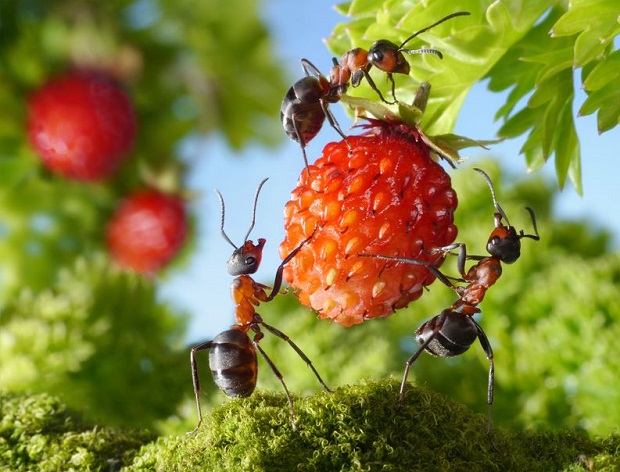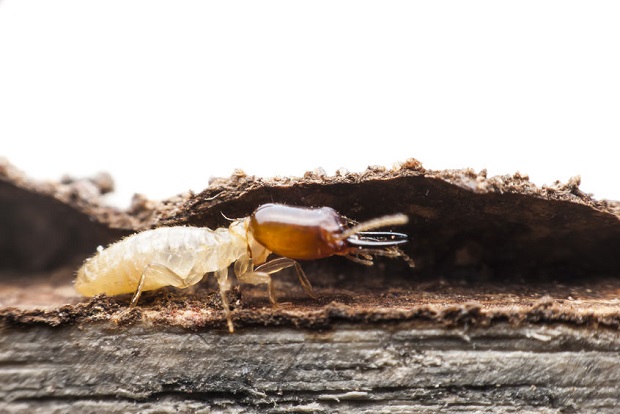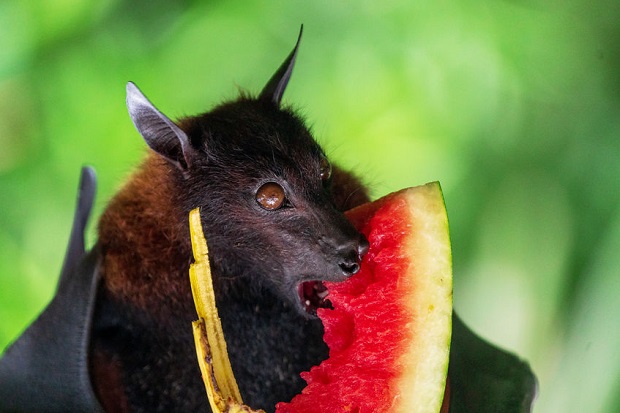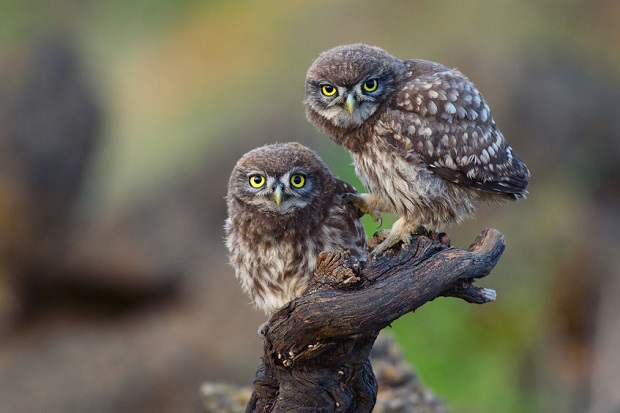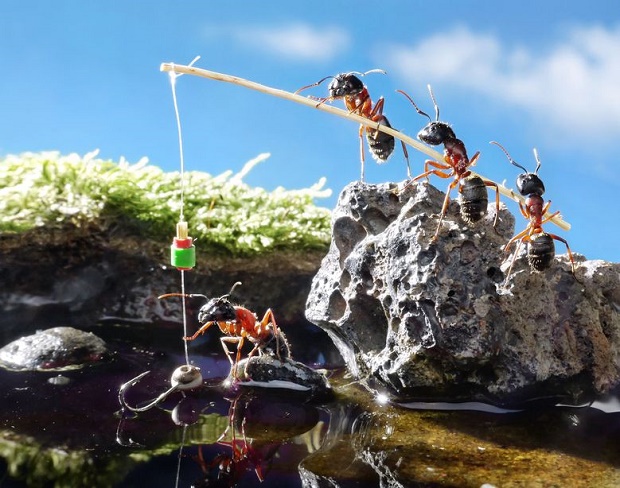
Do Ants Have Brains?
All ants have brains. The ant brain consists of learning, memory, sensory, and motor and mechanical components. The colony thinks together with each member of the colony, queen, males, and workers, providing part of the thinking power for the whole.
Learning and Memory
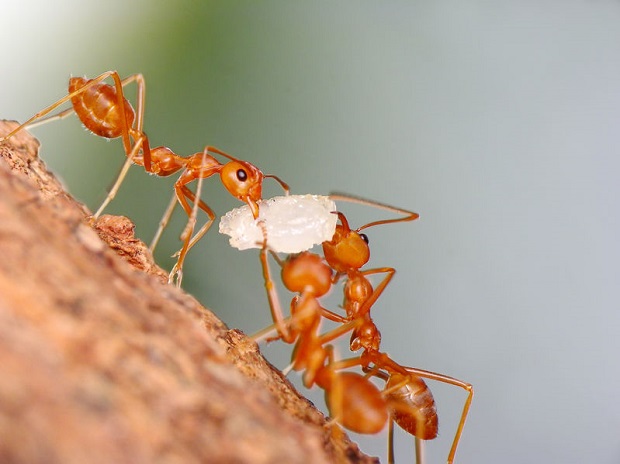
The part of an ant’s brain called the mushroom body controls advanced behavior, such as their ability to adapt to new situations quickly. For example, each ant in a colony has an assigned task. One ant might be a housekeeper while another is a food forager. If the needs of the colony change, the ants are able to switch tasks to provide for the needs of all quickly.
Sensory

Though ants are not visual creatures, their brains are equipped with photoreceptors. Some experts theorize that this part of the brain perceives motion, patterns, and direction rather than clear visual cues. The brain also houses olfactory neurons, upon which the ant relies heavily. The olfactory neurons can process ordinary odors and pheromones. Pheromones are used for food foraging, direction, and an alarm mechanism. For the purpose of food foraging, the ant assigned this task marks the trail for its fellow ants to follow. They, in turn, will subsequently reinforce the trail with more pheromones. They use this same form of communication to find their way back to the colony. Ants also use pheromones as an alarm mechanism to warn other ants of impending danger. Additional communication methods include analyzing vibration and touch.
Motor and Mechanical Stimuli
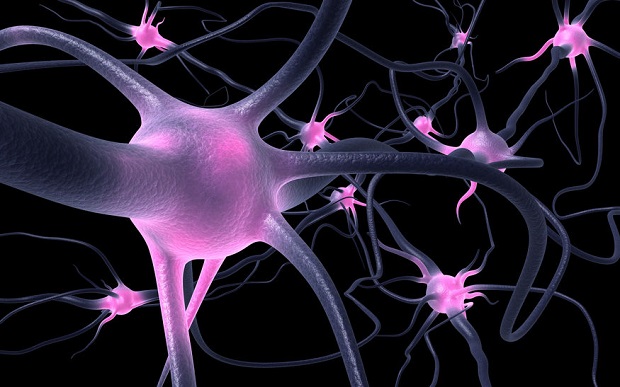
Much like humans, ants have motor neurons that send signals to the muscles that move body parts such as the antennae and legs. It is believed that the central complex of the ant’s brain modulates motor commands and may even be responsible for organized behavior.
Glossary
Photoreceptors: Cells or structures that are sensitive to light
Olfactory Nerves: Nerves located in the nose that carry the sense of smell from the nose to the brain.
Pheromones: Chemical secreted by an animal that acts to influence the behavior of other members of its species.
Expert Opinion
“The biological success of ants is probably not so much the result of an individual’s brain as of the concerted action of a colony’s hundreds or thousands of brains.”
Wulfila Gronenberg
“A colony is analogous to a brain where there are lots of neurons, each of which can only do something very simple, but together the whole brain can think. None of the neurons can think ant, but the brain can think ant, though nothing in the brain told that neuron to think ant.”
Deborah M. Gordon, Stanford University assistant professor of biological sciences
Collective intelligence: Ants and brain’s neurons
Resources
“Collective Intelligence: Ants and Brain’s Neurons.” Standford University News Service. Stanford University, n.d. Web. 30 June 2016.
Dr. Gronenberg , Wulfila . “Structure and function of ant (Hymenoptera: Formicidae) brains: Strength in numbers Hymenoptera: Formicidae) brains: Strength in numbers.” University of Arizona. N.p., n.d. Web. 30 June 2016.
